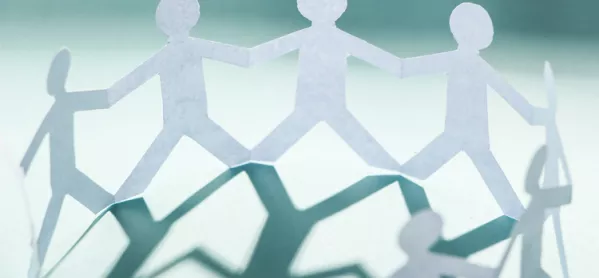- Home
- ‘Children with Down’s syndrome are entitled to a mainstream education, just like everyone else’
‘Children with Down’s syndrome are entitled to a mainstream education, just like everyone else’

I want to tell you a sad little story about children. Children who were, if the international narrative is to be believed, never supposed to happen. Children with Down’s syndrome.
I want to start with some startling facts. Did you know, for instance, that it has only been since the 1970 Education Act that individuals with Down’s syndrome have been entitled to an education at all? And did you know that it was during the 1980s that those with an extra chromosome 21 were entitled to access their education in a mainstream school? Well, these facts might not startle you, but they do me.
My son, you see, has Down’s syndrome.
When he was born, I met a lady who was a friend of my mother-in-law. She also had a child with Down’s syndrome and when she met my son, she was sad. She was sad, not that I had had a disabled child - there was no pity, no sense of commiseration at the terrible, stigmatised future we faced. No, she was sad because her daughter, a shy, grown woman, did not have the opportunities that my son would be offered. She, unlike my son, was sent home to stay as an eternal child.
Today, according to many, the future is bright for children with Down’s syndrome. Medical advances mean that therapies and life-saving surgeries can be offered. Knowledge about learning has been applied. The law has been changed to offer disabled youngsters like my son an education, should they need it, up to the age of 25. There are social care and support packages. Expectations, mine included, have been raised. Instead of a future of homemade brown cardigans and boredom, my son’s future is bright and not too far different to that of a typical young person’s.
“I’m sorry.” The dreaded, doom-laden words of an obstetrician or paediatrician, medical man or midwife no longer have to mean: “I’m sorry, your life is over.”
‘No plan means no provision’
Every day, children with Down’s syndrome are marching down the road to school, along with their peers, in the same little uniforms, with the same little bookbags and water bottles, stamping back home again with the same little tantrums, reclaiming their rights to our shared humanity as they go. It’s heartening.
Except that every day, boulders in the form of educational strife are thrown in their way.
Did you know, for instance, that there are parents of young children with Down’s syndrome who have had to force local authorities to give their children an EHCP? That there are children with Down’s syndrome (a well-known learning disability, with a well-known learning profile, and a well-known need for good, early, educational intervention) without a full-time EHCP, or even without one at all? No plan means no provision and cobbled-together, stressed-out support.
Did you know that there are schools that make life so difficult for parents and families of children with Down’s syndrome through little and poor communication, a refusal to follow advice, a lack of care shown towards vulnerable children (often couched under the guise of a bland “we treat all the children the same” policy) and an adversarial attitude, which characterises parents as “That Woman”, that they feel they have little choice but to move their children out, away from their friends and community, to join a specialist setting, miles away? An early start, a long journey, strangers.
And flexi-schooling; did you know about that? That some children are too poorly to attend school full-time, but they are told they must, because of rules and funding, regardless of the serious risk to their health?
‘Increasingly isolated’
Did you know that often, parents of children with Down’s syndrome have to turn themselves into lawyers, prepared to do battle with faceless bureaucrats whose main mission is to save local government money and lose friends in the process? That getting the support that their children need can be a full-time job and certainly more stressful?
And saddest of all is that this hardy band of people, this group of fighters and determined advocates, is shrinking. The detection rate for foetuses with an extra chromosome 21 is increasing. And the fear and loathing felt towards the condition by people not lucky enough to know someone with it means that most expectant parents choose to terminate. As a community of parents, there are fewer and fewer people to ask: what do you do when the teacher won’t differentiate the homework? What do you do, when they won’t listen? There are fewer and fewer people who my son can see and think, “He’s just like me.” We are, increasingly, isolated.
To be honest with you, I am a teacher, and I thought we were better than the stories I have been told. Stories of struggle and sadness. I thought that we, although a hassled profession (I don’t think anything has changed there, to be honest), were imaginative and clever, brave and unafraid - accepting of all children, regardless. I thought we were all the things that cost no money.
Children with Down’s syndrome are entitled to a mainstream education, just like everyone else. One of the most powerful and important things you can do for such a child is to accept them, and get to know them. Because you know, when you do, you’ll find something really quite wonderful: a person.
Nancy Gedge is a consultant teacher for the Driver Youth Trust, working with schools and teachers on SEND. She is the author of Inclusion for Primary School Teachers. She tweets @nancygedge
Keep reading for just £1 per month
You've reached your limit of free articles this month. Subscribe for £1 per month for three months and get:
- Unlimited access to all Tes magazine content
- Exclusive subscriber-only stories
- Award-winning email newsletters



